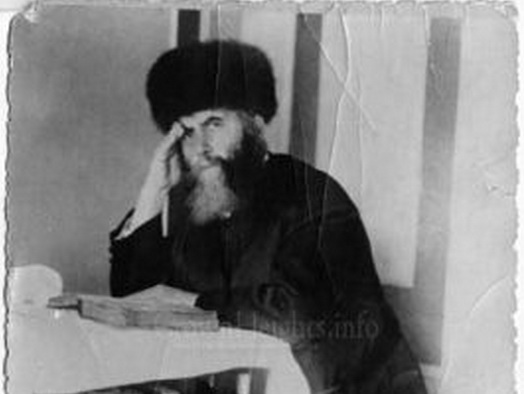
Weekly Story: The Frierdiker Rebbe
Rabbi Sholom DovBer Avtzon
Being that Yud Beis Tammuz was two weeks ago, I am posting something I mentioned at a farbrengen. It is taken from my upcoming biography on the Frierdiker Rebbe.
As always your comments and feedback are greatly appreciated.
When he became Rebbe and said maamorim, the learned chassidim were astounded at the new insights he put forward. They openly exclaimed, “We never recognized his greatness.”
But nevertheless, a few years later everyone in his generation was able to recognize his greatness, as he was the only one that stood up to the Communist regime, and by the time he left Russia, the tzaddikim called him the tzaddik of the generation.
While his mesiras nefesh, standing up to the Communist regime definitely qualified him for this recognition, I would venture to say that it was the ten years that he was in America, that it became clear to everyone (not just tzaddikim) to say with absolute certainty that he was the tzaddik of the generation.
Standing up to the Communist regime was not his plan when he assumed the Nesius after his father’s histalkus on Beis Nissan 5780 (1920). Initially, all he wanted to do was to expand and strengthen the yeshiva as well as strengthening the learning of Chassidus among chassidim. As this is what his father instructed him to do in his tzavaah (will).
However, being that the regime began to systematically destroy Judaism/Jewish observance by forcefully closing down the chadorim, mikvaos, and shuls and at the same time banning shechita and bris milah. So then he felt he has no choice but to stand up to protect and preserve Judaism and become involved in all the above. If he will not, the enemy will succeed, since no one else is willing to do so,
However, when he came to America, there was no visible enemy. On the contrary, America offers everyone the right to practice their religion as they choose. There were many Rabbonim with large communities doing the right thing for their own community. So the Rebbe could have down the same.
He could have focused on helping and indeed saving and rescuing his family, students, and chassidim from war-torn Europe and begin the process of rebuilding Lubavitch.
But no, he was interested in everything Jewish. He prodded Rabbonim of other communities to become more active in their own community, whether it was concerning the education of their children or building a mikva and strengthening the observance of Shabbos and kashrus. He waged a war against the non-observant teachers in the Talmud Torahs and the mentality that in America it is different and we have to be happy with the little traditions that we can salvage and be willing to compromise on everything else.
The New York State department of Education noticed that Jewish parochial schools are opening up, and with that they didn’t have a problem. However, the fact that the children first learn Judaic studies and then only later on in the day, in the afternoon, do they learn the secular studies this bothered them. By that time the children were in school for a few hours and they might not have the same concentration capabilities as they had in the morning.
So they sent a memorandum to all parochial schools stating; While America allows you to practice your religion as you wish, nevertheless, it is necessary that your school day begins with learning the required subjects (the three R’s reading, writing and arithmetic etc.), and then you can teach whatever religious material you wish to.
Being grateful that America is allowing them to open a yeshiva/day school, the schools felt that they have no choice but to accept this guideline. However, the Frierdiker Rebbe declared that this is against the teachings of our holy Torah.
The possuk states, Reishis Arisoseichem titnu Terumah La’Hashem, which is literally translated to mean that the first of your dough shall be given to Hashem, which is the mitzvah of separating Challah from a five pound batch of dough.
However, it also has the meaning that when one awakes the beginning of his day should be designated to serve Hashem. Therefore, the students first hours (when the mind is fresh) should be to learn Judaic studies, and then learn what is required by law.
This steadfast resolve of his did not only help his own schools but benefitted every Jewish school and yeshiva.
Additionally, he didn’t only involve himself in his neighborhood of Brooklyn or even his area of the greater New York region, but he became involved in Jewish communities all over America, Canada, South America, Europe Russia Australia, and especially Eretz Yisroel.
Additionally, not only did he pay attention to the communal needs of the Jewish people, he was interested in and helped individuals as well.
Chassidus explains this is what a Rebbe is.
Rebbe is just not a great Rabbi and leader for his community, which he is. But Rebbe stands for Rosh Bnei Yisroel, the head of the Jewish nation. Just as the head of a person is intricately involved in every aspect of the body and feels the pain of every limb, so too the head of the Jewish nation feels the suffering of every Jew and sees how he can help.
So while others called him the tzaddik of the generation, we simply call him Rebbe.
Rabbi Avtzon is a veteran mechanech and the author of numerous books on the Rebbeim of Lubavitch and their chassidim. he can be contacted at avtzonbooks@gmail.com










